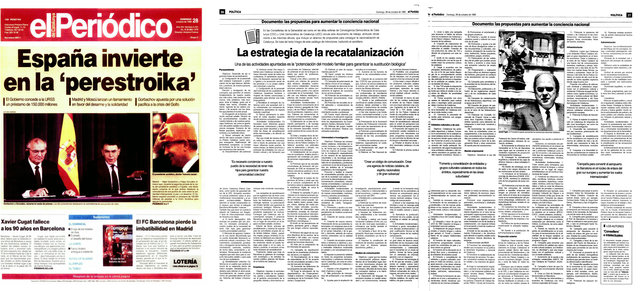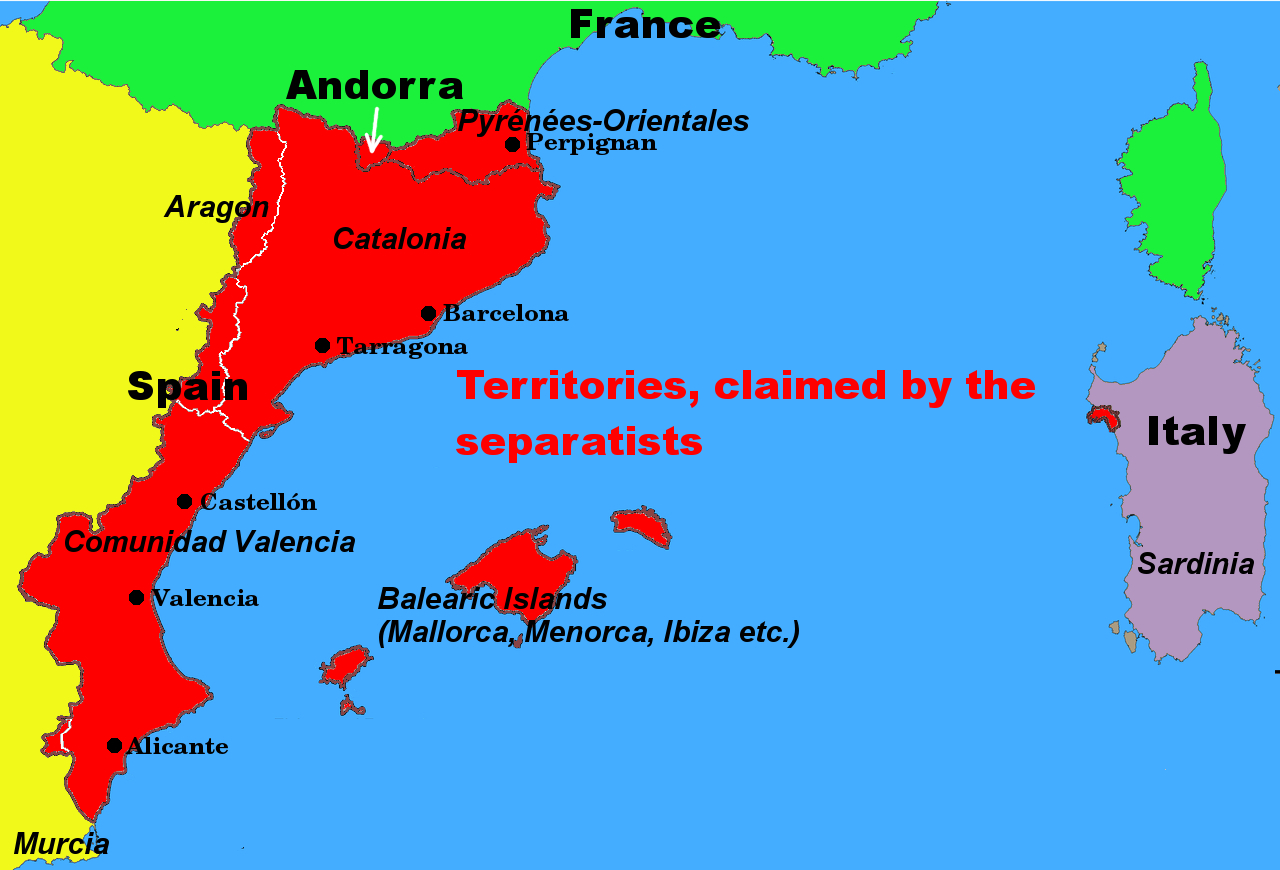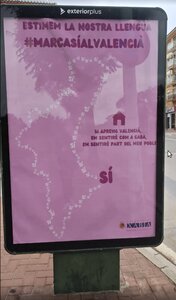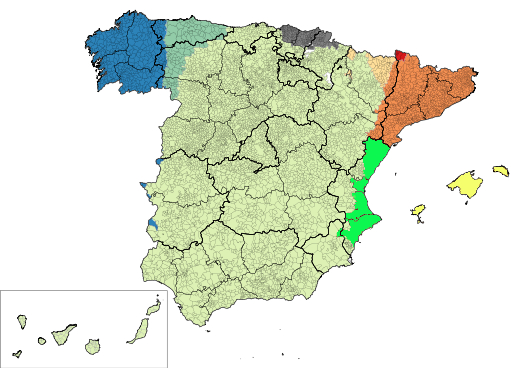Free choice of languages - really?
Valenciano versus Spanish?
March 5, 2025
Until yesterday, „elections“ were held in Valencian schools. Before the parliamentary elections, the current government had promised that parents would decide on the language of instruction. As soon as it came to power, the promise was „forgotten“ and a law was passed that stipulates at least 25% Valenciano.
In order to make people forget this fraud, so-called elections have now been held in schools, in which parents are supposed to decide whether their children should receive additional Valenciano lessons.
Unfortunately, this „election“ has often been interpreted as „Valenciano against Spanish“, as can be seen in the so-called social media, but also in the press.1
„Win win“ or „Every man must go to heaven in his own way“2
Anyone who deals with this problem soberly, peacefully and democratically will argue „with“ or „without“ Valenciano instead of „versus“ or „against“. I am not against Valenciano. I am against imposing a language on me. This is still the case with the new language law, although less so than with the old one. Valenciano will still be imposed and parents will still only be able to decide on the balance.
Contrary to their election promises, the politicians now in power have decided that children MUST learn at least 25% Valenciano! Parents can elect whatever they want.
The supporters of the undemocratic imposition of Valenciano put forward all sorts of dubious arguments in favour of this. For example, those who have learned Valenciano will find it easier to learn another Romance language later on. But the reverse is also true, for example, those who have learned French at school will find it easier to learn Valenciano later if they need to. But if you don't need Valenciano, you've wasted those lessons as a portion time of your life. Many German school leavers who mainly learned Latin and ancient Greek have had this experience: „...and leider it not help me many, if I must speak English, when I am in the Ausland“. By the way, it is often claimed that Valenciano is a dialect of Catalan. Maybe so. I know a lot of Valencians who claim the opposite, that Catalan is a dialect of Valenciano. But that is a linguistic argument, it is not used politically, these Valencians that I know are all against the language imposition.
It should also be pointed out that language imposition has always been a means for dictatorships to drive people into armed conflict. Franco did this by suppressing Spanish regional languages and it is one of the key drivers in the conflict still raging in Ukraine, where Russian is banned. Language impositions and language bans always lead to discord.
Parents, not politicians, should decide. Anyone who has grown up with Valeciano wants to cultivate Valencian language and culture with their children. This should also be well promoted - at school and elsewhere. I think diversity is good and I don't want a linguistic uniformity worldwide, which is illusory anyway. However, I would like to see a different language for the multilingual education of my children. And a democratic education without language impositions.
However, this is not in the interests of the separatists, Catalan or Valencian, who always have their own interests at heart and not those of a peaceful community. Today Elmundo.es reports: „Puigdemont's dream of a 'social contract': imposing the 'requirement' of Catalan on foreigners in order to create 'one people'. Junts agrees with the PSOE that the Generalitat will demand the language from immigrants in order to grant them a residence permit under the pretext of 'protecting the cohesion of the host society'.“ The majority of Catalans speak Spanish as their mother tongue, but this they do not require.
Election rigging?
Everywhere in Jávea, the town hall has made it clear that parents should opt for Valenciano as the language of instruction.
In a social system in which the government asks voters to vote in favour of a particular direction, there can hardly be any question of democracy. Nor can we rule out the possibility of vote rigging. The first manipulation already consists of the fact that Valenciano cannot be voted out of my kid's education.
The results of the current „elections“ in the schools are not yet known.
Footnotes
1 Valenciano versus Spanish: Parents vote on language at schools - much anger about „free choice“ (https://www.costanachrichten.com/spanien/politik-wirtschaft/valenciano-gegen-spanisch-eltern-stimmen-ueber-sprache-an-schulen-ab-93585367.html)
2 "Every man must go to heaven in his own way," Frederick II of Prussia once declared, „The religions must all be harmonised and the fiscal must take care that none of them detracts from the others, for here every man must be blessed in his own way.“. Why shouldn't this also apply to languages?
| | | | Click here to subscribe or cancel your subscription |
Myths and deceptions of Catalan nationalism

Here you'll find the translation
Languages in Spain
Spanish, Basque, Catalan, Mallorquin, Valenciano etc.
The strategy of recatalanization
 1980 the Spanish journal "El Periodico" published a secret document about the strategy of the Catalan government. It shows in a frightening way the actual spiritual world of the separatist leaders.
1980 the Spanish journal "El Periodico" published a secret document about the strategy of the Catalan government. It shows in a frightening way the actual spiritual world of the separatist leaders.Now it is available in english translation.
Pancatalanism
the separatist's imperial claim
 The Catalan government exports the conflict into communities with Catalan population, supporting all efforts of the separatists including financial means to destroy Spain.
The Catalan government exports the conflict into communities with Catalan population, supporting all efforts of the separatists including financial means to destroy Spain. An important tool is the establishment of a language dictatorship that is not afraid to use the same means as Franco.
Separatist indoctrination

Click here to read the study
Language imposition and democracy

An essay in 6 parts on the potentially violent effect of language imposition containing contributions from South Africa, Catalonia, Ukraine and France.
go to part 1 SticSti
Publications
 The title says: "Catalonia, a conflict is exported. Insights of a migrant"
The title says: "Catalonia, a conflict is exported. Insights of a migrant"Sorry, up to now, this book is only available in German. However, drop us a line, if you are interested to learn more Contact.


